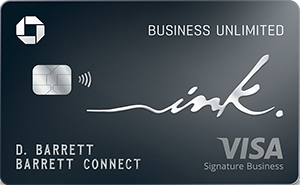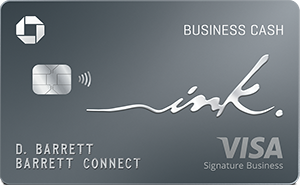When looking to become an entrepreneur, many first-timers consider buying a franchise. And that makes sense. Buying a franchise can be a big hit to your checking account, but it can be reassuring to know that you won’t have to reinvent the wheel to run your new business.
Here’s a closer look at the perks and drawbacks of becoming a franchisee.
Pros of buying a franchise
The benefits of buying a franchise are significant.
Less risk
The whole idea of a franchise is that you’ll be buying into a business and a system that has been proven to work, so much so that it’s been reduced to a process you can follow and get the same results. You won’t need to invent your own accounting process, for example. Owning a franchise, ideally, should be less risky.
Built-in support
Ray Kroc, the founder of McDonalds, put it best. With a franchise, “you will be in business for yourself, but not by yourself.” What that means is that the franchisor is your partner in success — if you succeed, the company succeeds. And as such, you’ll get ongoing help and advice.
An established process
You won’t need to invent, or re-invent, the wheel. Businesspeople who start from scratch have to figure everything out, from how to set up shop to where to buy supplies to how to market to and get customers. Not so for franchisees.
Why a Business Credit Card Could Transform Your Small Business
These business credit cards that offer a convenient and efficient way to separate personal and business expenses, simplifying accounting and tax reporting.
Additionally, business cards can provide valuable perks such as rewards points, cashback, and expense tracking tools, enhancing financial management and the potential to help save money in the long run.

Ink Business Unlimited® Credit Card |
Earn $900 bonus cash back Earn $900 bonus cash back after you spend $6,000 on purchases in the first 3 months from account opening. |
Earn unlimited 1.5% cash back on every purchase Earn unlimited 1.5% cash back on every purchase made for your business |
Purchases: 0% Intro APR on Purchases, 12 months Balance Transfers: N/A
Regular: |
|

Ink Business Cash® Credit Card |
Earn up to $750 bonus cash back Earn $350 when you spend $3,000 on purchases in the first three months and an additional $400 when you spend $6,000 on purchases in the first six months after account opening. |
Earn 5% cash back in select business categories Earn 5% cash back on the first $25,000 spent in combined purchases at office supply stores and on internet, cable and phone services each account anniversary year. Earn 2% cash back on the first $25,000 spent in combined purchases at gas stations and restaurants each account anniversary year. Earn 1% cash back on all other card purchases with no limit to the amount you can earn. |
Purchases: 0% Intro APR on Purchases, 12 months Balance Transfers: N/A
Regular: |
Cons of buying a franchise
But despite these obvious benefits, there are downsides for sure.
Not all franchises are created equal
Some franchisors give a lot of support, some do not. Some offer a great system, others don’t have all the kinks worked out. Some franchisors are honest and scrupulous, others are not; lawsuits against bad franchisors by unhappy franchisees are not uncommon.
The business may not be all it’s cracked up to be
Franchises are indeed popular for a very good reason: People like the idea of buying into a proven system where the kinks have been worked out and a success process is offered. Consequently, there are more than 800,000 franchises in the U.S. alone.
But before you buy a franchise, you must do your due diligence to make sure that you’re buying into a system and franchise that has a high likelihood of success and profitability.
You will have a partner and need to follow company rules
If you start a business on your own, you’re the boss. You make the rules. Not so with a franchise. In a franchised system, you have to follow its rules and brand guidelines. You may just be trading in an old boss for a new one.
Here, then, are the most important factors any potential franchisee needs to check out to make sure the pros outweigh the cons.
What do other franchisees say?
When you meet with the franchisor, the company will of course talk up the franchise and the system. After all, it’s their business, they invented it, they (hopefully) perfected it, and they want you to become a high-paying part of it.
That’s all well and good, but the fact is, you will learn way more by finding and speaking to current franchisees on your own. These folks will give you the lowdown:
- Is the franchisor good or bad to work with?
- How easy or difficult is it to run this business?
- What red flags should you be aware of?
- Would they buy into it again?
Current franchisees (and any former ones, if you can find them) will give you the skinny on the real pros and cons of this venture.
What does the Franchise Disclosure Document reveal?
When you meet with the franchisor, you will receive a document called the Franchise Disclosure Document, or the FDD. This is a document mandated by federal law that discloses 23 different things about the franchise, including:
- Item 1: This sets out the basic type of business you would be buying into, how long the franchisor has been selling franchises, the competition, and so on.
- Item 2: This item discusses the business history of the principal officers of the franchise.
- Items 8 to 17: These disclosures are the actual franchise contract you would sign, so these must be reviewed by your attorney.
- Item 19: This discusses some financial issues.
Notably, it’s difficult to discern exactly how much you might expect to make with a particular franchise. It’s not in the FDD. That’s because the franchisor doesn’t want to make promises — explicit or implied — that could open the company up to potential litigation. What if you don’t make the amount it says you will?
That’s another reason to speak with current and past franchisees.
What about the details?
There are factors to discover that can be very important, things that can turn a pro into a con in a hurry.
- Exclusivity: You sure don’t want the same pizza franchise opening up down the street. What sort of territory exclusivity will you get?
- Supplies: Can you source your own supplies and inventory, or will you be required to buy them from the franchisor (and maybe at inflated prices)?
- Fees: Make sure you understand all of the fees: royalties, marketing and advertising, products, etc.
- Processes: Maybe you have some of your own ideas and systems. Can you implement them?
The bottom line is that while yes, buying a franchise can be a lucrative winner, it can also be an expensive loser. Do your homework before you buy in.
